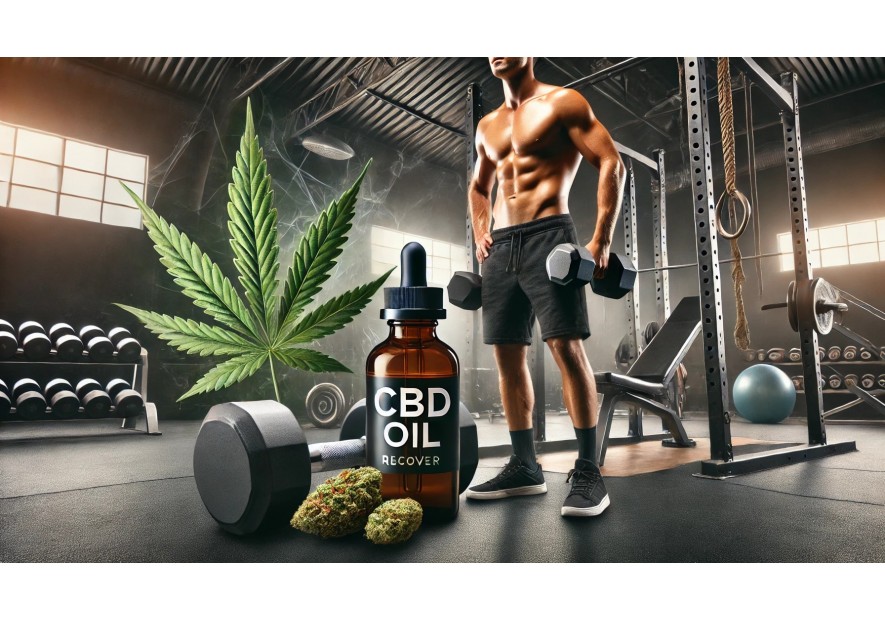Cannabis and Bodybuilding: Friends or Foes for Athletic Performance?

Introduction
The use of cannabis, particularly in the form of CBD (cannabidiol), is sparking an increasing debate in the world of sports, especially in bodybuilding. Many athletes wonder about the potential effects of this plant, specifically whether it is beneficial or harmful for performance and recovery. This article explores the current data on the links between cannabis, muscle growth, athletic performance, and recovery.
Is Cannabis Anabolic or an Obstacle for Muscle Growth?
The key question is whether cannabis has anabolic properties (promoting muscle growth) or if it acts as an inhibitor. Current studies show mixed results:
- Impact on Testosterone: Some studies have shown that regular cannabis use can lead to a decrease in testosterone production, a key hormone in muscle growth. However, the effects vary depending on doses and consumption methods. Light use seems to have minimal impact, while chronic and heavy use could lower testosterone production and, consequently, hinder muscle gains.
- Psychomotor Effects: Cannabis can affect coordination and the ability to execute complex movements. For a bodybuilder, this could translate into reduced training efficiency, potentially lowering workout intensity and workload.
In conclusion, current data do not support the idea that cannabis has direct anabolic effects. On the contrary, excessive consumption could hinder performance and muscle growth.
Cannabis and Performance: Boost or Decline?
The effect of cannabis on athletic performance largely depends on the specific compounds consumed (THC vs. CBD) and athletic goals. THC, the psychoactive compound in cannabis, can reduce motivation, energy, and impair cognitive functions. This can negatively affect performance, especially in sports requiring high concentration and intensity, such as bodybuilding.
On the other hand, CBD, which has no psychoactive effects, is often promoted for its anti-inflammatory and anxiolytic properties. Some studies suggest that CBD may help improve recovery by reducing post-workout muscle soreness. However, these effects do not necessarily translate into enhanced bodybuilding performance but rather into better recovery management.
Inflammation and Muscle Growth: A Delicate Balance
Inflammation is a natural and necessary process in muscle development, as it signals the repair and growth of fibers damaged during training. CBD, with its anti-inflammatory properties, could theoretically reduce this inflammatory response. Some experts fear that this could hinder muscle gains by limiting the adaptation necessary for hypertrophy.
However, for athletes who train intensely and regularly suffer from chronic inflammation, CBD could play a positive role in promoting faster recovery, allowing them to train more frequently without suffering the negative effects of prolonged inflammation.
CBD for Athletes: Endurance vs. Strength
CBD seems to offer specific benefits for endurance athletes. Several studies show that CBD can reduce anxiety, improve sleep, and minimize muscle pain, which is crucial for long-distance athletes. In this sense, CBD may be more beneficial for endurance sports than pure bodybuilding.
In the realm of bodybuilding, CBD can help improve sleep quality, which is crucial for recovery and muscle growth. Additionally, it can help manage stress and anxiety, which could indirectly improve performance during training sessions.
Side Effects and Precautions
While CBD is generally well-tolerated, some side effects can occur, including excessive drowsiness or a drop in energy, which could harm strength performance. It is therefore essential for athletes to test their tolerance to CBD and choose appropriate doses based on their goals.
Conclusion
Cannabis, in its psychoactive form (THC), appears to be more harmful than beneficial for bodybuilders, mainly due to its effects on concentration, coordination, and testosterone production. CBD, on the other hand, presents interesting benefits, particularly for recovery and inflammation management, although its impact on muscle gain remains debated. For endurance athletes, CBD could offer significant benefits, particularly in terms of pain management and recovery.
In summary, for strength and bodybuilding athletes, CBD can be a useful supplement if dosed correctly and not overly relied on for anti-inflammatory effects to maximize muscle gains. As always, it is recommended to consult a healthcare professional before incorporating cannabis or CBD into a sports routine.







